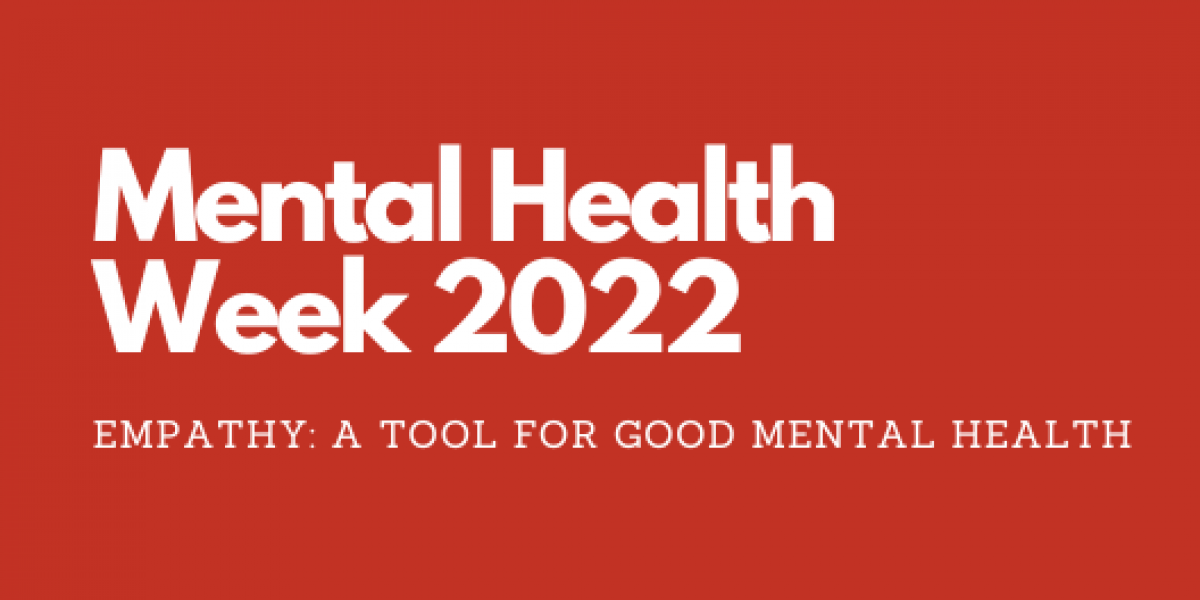Each year, Mental Health Week is celebrated and promoted in the first week of May. This year’s Mental Health Week is all about empathy, and it encourages individuals to ‘#GetReal about how to help’.
Mental health is a vital component of our overall health and wellbeing. Mental health means living well, finding balance in all aspects of life, and having the tools to cope with difficult situations and life’s many challenges. To maintain good mental health, it can be helpful to participate in healthy behaviours such as exercising regularly, eating nutritious foods, managing stress and getting good sleep. But did you know that practicing empathy can also help support your mental health?
Empathy is a skill that you have likely already practiced without realizing it. For example, if you have ever said something like “I can relate” or “I’ve been there” after someone shared a personal challenge with you, then you have practiced empathy. Essentially, empathy is the ability to put yourself in other people’s shoes and understand why they are feeling a certain way, whether it be a negative or positive emotion.
Empathy is important for mental health because it allows you to build social connections and function well in society; it can help you better manage your emotions and feelings without becoming overwhelmed; and it can make you more likely to help others and feel good about yourself (which makes other people more likely to help you). All in all, practicing empathy will allow you to better connect with others, and strengthen your relationships at home, in the workplace, and in your broader community.
Empathy may come more naturally to some than others. But since it’s a skill, everyone can learn and develop it over time. If you would like to build your empathy skills, here are a few things that you can do:
- Be aware of your biases: we all have biases or prejudices toward individuals or groups, whether we’re aware of them or not. Working on becoming more aware of your biases makes them less likely to control your thoughts, feelings, and actions.
- Take a different perspective: be willing and able to see the world through the eyes of others by listening to what they are really going through. Try to understand people, even when you don’t agree with them by asking questions such as “What’s your experience? How do you see it?”.
- Listen actively: be sure to really listen to what the other person is saying by making eye contact with them and avoiding interrupting them (e.g. letting them finish speaking before you respond).
- Take action: recognize that you can do things, however small, to make a difference in someone else’s life. Empathy can give you the motivation you need to help or initiate positive change for others.
As you may have noticed, listening is a vital component of practicing empathy. This includes listening without suggesting possible solutions to the person’s negative emotion unless they specifically ask for advice. When someone is struggling, they don’t always need someone to swoop in and fix their pain; they may just need someone to understand where they’re coming from and see things through their eyes. As the Canadian Mental Health Association puts it: “before you weigh in, tune in”.
Although listening is important, words can make a difference, too. They can help you respond to people in a way that supports them and validates their feelings. For instance, when someone shares a personal struggle with you, it can be helpful to use empathetic responses, such as “I’m here for you. What do you think I could do to help you feel better?” or “Thank you for trusting me with this. It means a lot to me”. These types of responses don’t offer solutions or silver linings, instead they create a better connection and help others feel less alone in whatever they are facing.
Empathy can bring great value to your everyday life, including having a powerful impact on your mental health by helping you connect with others. This Mental Health Week, consider learning more about empathy and working on developing this skill.
To learn more about empathy, visit the Canadian Mental Health Association website: https://www.mentalhealthweek.ca/. You can also consider registering for a FREE virtual workshop on the importance of empathy by Sullivan + Associates on May 5th from 7:00pm to 9:00pm. To register, please call Sullivan + Associates at 807-768-0660.




